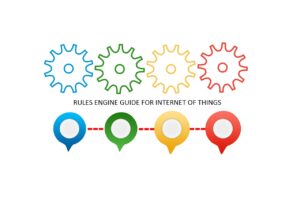Today, it’s critical that websites load fast and offer a flawless user experience to gain and retain customers.
As per Google’s research, when the page load time changes from 1 second to 3 seconds, the bounce rate surges by 32%. And at five seconds, the bounce rate surges by 90%.
This proves that the demand for fast loading sites is widening quickly and speed is a significant factor for bringing in more conversions.
“The faster a site loads, the better the user experience and your chance to rank high in Google search results.”
Thus, optimizing the load time is an important component of building a website.
Tools For Enhancing Website Loading Speed
There are various speed tools out there that make it easy to boost loading speed with little effort. Let’s take a look at the top four speed tools that help improve website performance and SEO ranking.
Pingdom
Pingdom is a freemium tool that analyses a website and finds out any performance issues that might be impacting the website loading speed. It offers both free and paid versions.
To use Pingdom’s free speed test tool, copy and paste the URL of the website. Next, choose the test location that is closest to the target audience and hit the “Start Test” button.
The outcome is a report that indicates the website’s loading time, performance grade, page size, and the number of HTTP requests made.
However, note that depending on your website configuration, it may not be always realistic to expect a perfect 100 score. This is even harder for those running ecommerce sites and marketing pixel installations.
The idea is to aim for improving your website speed as much as possible, and not to chase a particular score.
Below the score summary is another comprehensive report that highlights the website’s performance factors and recommendations to improve.
Pingdom also offers a waterfall analysis of every HTTP request on the site. It helps gain a visual understanding of how a site loads and what is causing a slow load time.
The premium version offers a 14-day free trial, providing features such as page speed monitoring, uptime monitoring, cloud performance monitoring, visitor insights (RUM), and more.
TinyPNG
Visuals make your website content more engaging for users. However, one of the major reasons for poor website loading speed is heavy image files.
“According to HTTP Archive, images make up over 75% of the total page weight.”
Moreover, a recent survey of digital experts found that image optimization is the most relied upon tactic for speeding up a website. Needless to say, when it comes to optimizing page performance, compressing images is the first place you should start.
TinyPNG is a free tool that helps compress images without compromising image quality. It does that by using ‘lossy’ compression techniques which selectively reduce the number of colors in the image, thereby reducing file size.
When compressed with TinyPNG, PNG files maintain their transparency and can render flawlessly across all browsers and devices.
Another notable feature of TinyPNG is bulk compression. If there are multiple images to compress, a user can upload up to twenty images at a time, as long as each image is less than 5 MB.
In addition, TinyPNG offers a WordPress plugin to automatically compress PNG and JPG images uploaded to the website.
For people operating ecommerce websites, an added advantage of using TinyPNG is its compatibility with WooCommerce.
HTTP Compression Test
Compressing your content, also known as HTTP compression, is another important step in speeding up your website.
HTTP Compression is a method where the content on a server is compressed before delivering it to the browsers. Compressing your content helps save bandwidth and lightens the load on your server.
“With smaller, compressed files, the server can have more space for more data. In addition, the server can also transfer the data rapidly.”
By reducing the time taken for a website to transfer the data, compression reduces the website’s load time.
HTTP compression may require some additional processing at the server, but it will still end up saving considerable power that the server would have expended in processing uncompressed files.
Keeping this in mind, the HTTP compression test tool helps you check if your website server is configured for HTTP compression.
To find out if the compression is enabled on the site, enter the URL of the website and click the “Test” button.
The tool will show whether your website content is compressed before delivering to the user, along with the uncompressed and compressed page sizes.
IcoMoon App
Another thing that could be clogging your website loading speed is the fonts and icons being used. These may seem like minute factors. However, every little thing matters and adds up to make your website load fast.
IcoMoon is a great tool that serves this purpose. It helps compile your own fonts or those chosen from one of the packs. Visit the IcoMoon App and select the required icons.
Once the selection is done, click ‘Generate font’. On the next screen, you can customize the icon names or download the entire pack of icons you selected as is.
You can upload this compressed folder to your website’s file directory to start using the light-weight icons instead of those you may have been using previously, thereby reducing the load time.
Speed Up Your Website
Website speed optimization is not a set and forget process. It is always evolving. As you continue to use these tools and make necessary customizations, you’ll start noticing improvement in your website’s engagement metrics and search engine rankings.
Keep reviewing your website’s load times on a weekly basis, and fixing bottlenecks causing delays in loading.
By using these tools consistently for all the pages of your website, you’ll ensure a consistent and reliable user experience, which down the line will translate to more traffic, leads and sales.









